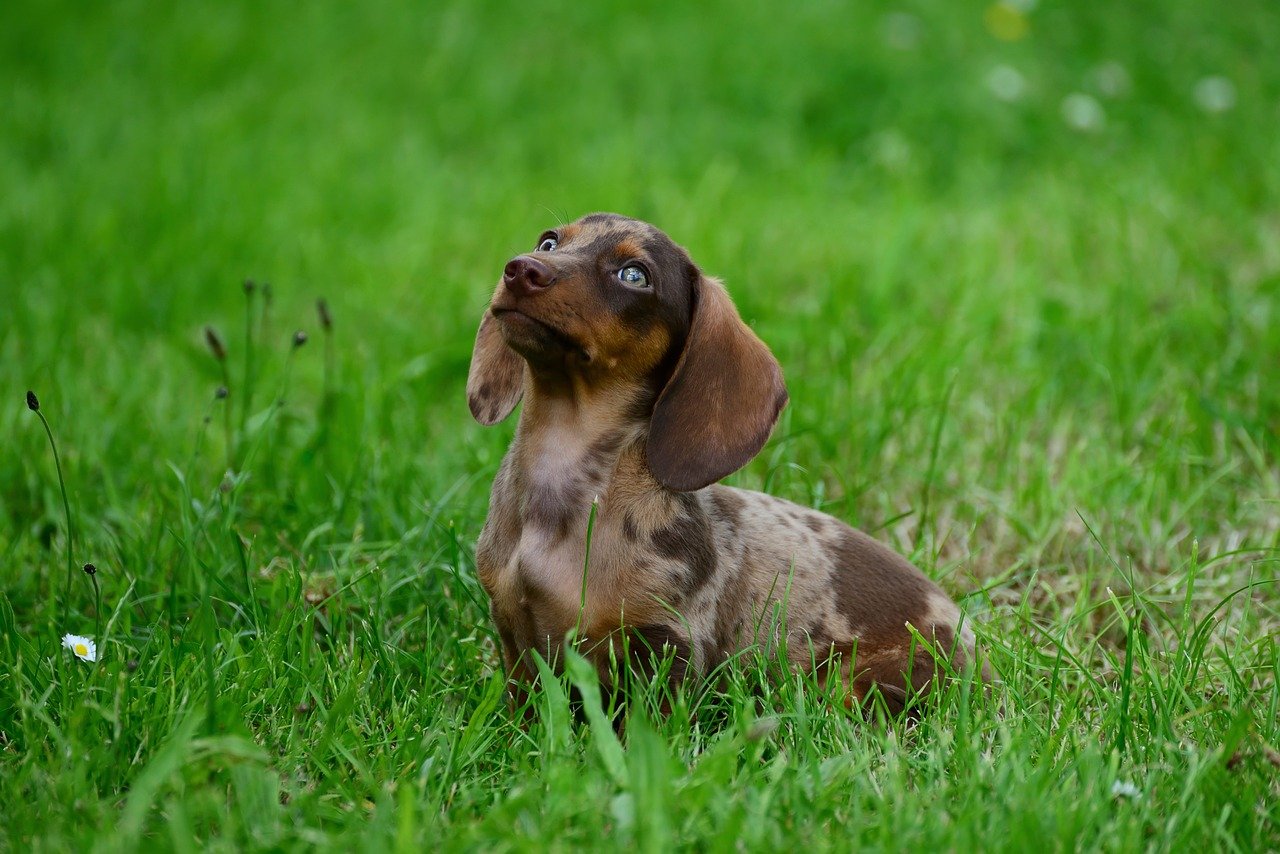 Shutterstock
Shutterstock
The history of dog breeds is a journey filled with fascinating twists and turns. As some of humanity’s oldest companions, dogs have accompanied us through countless eras and locations, evolving and adapting to unique roles and environments. From noble hunting dogs bred for royalty to hardy working dogs developed in remote regions, these breeds offer a glimpse into the history and cultures of their origins. Their stories reveal much about the times and places they come from, giving each breed a heritage that’s as captivating as the dogs themselves.
Afghan Hound
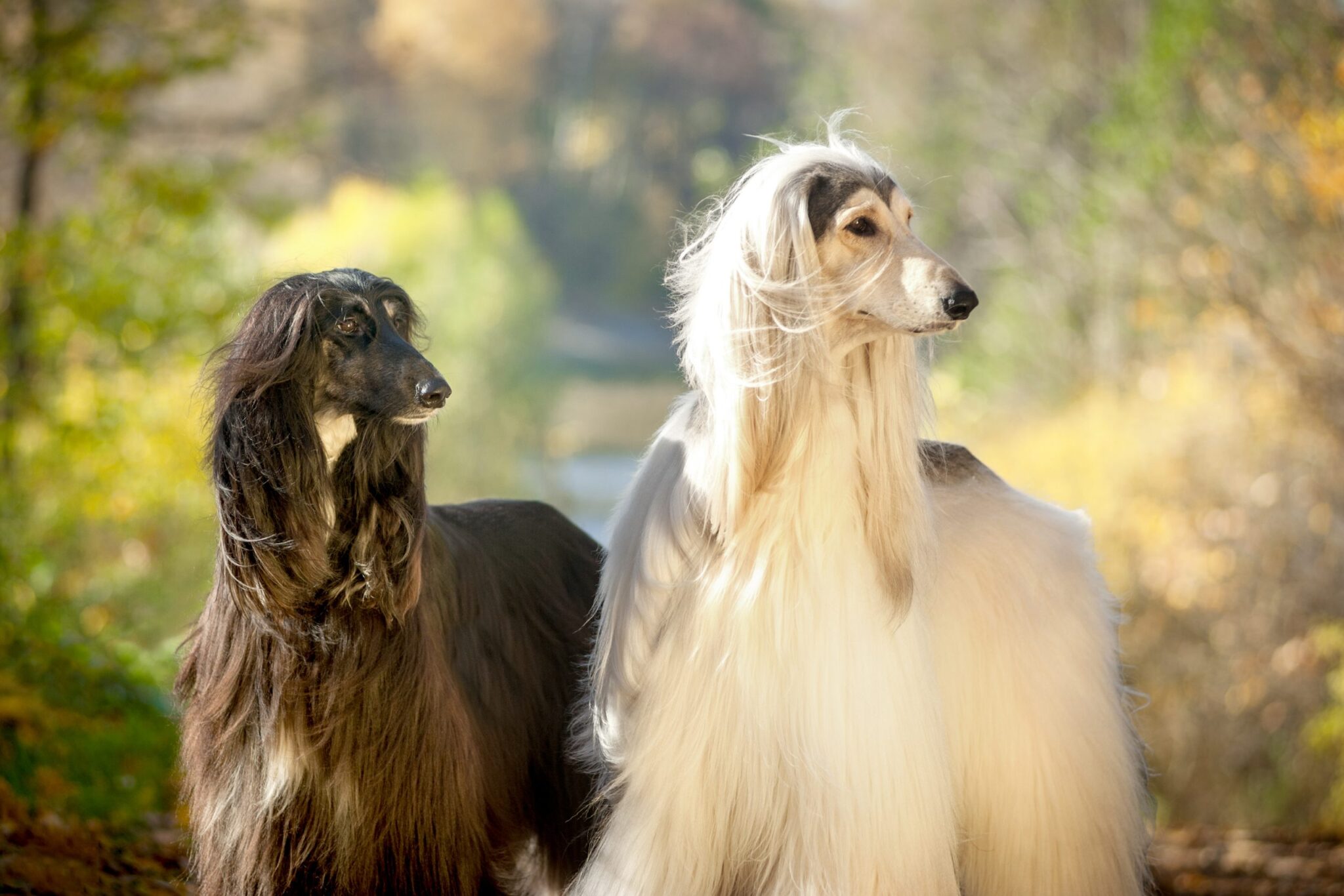 Shutterstock
Shutterstock
With roots tracing back thousands of years, the Afghan Hound is one of the world’s oldest breeds, originating in the mountainous regions of Afghanistan. Known for its glamorous coat and dignified demeanor, this breed was prized by royalty and hunters alike. Afghan Hounds were used to chase down a game in harsh terrains, relying on their speed and agility. Their ancestry includes a mix of sighthounds, making them skilled hunters with a noble, independent spirit.
Basenji
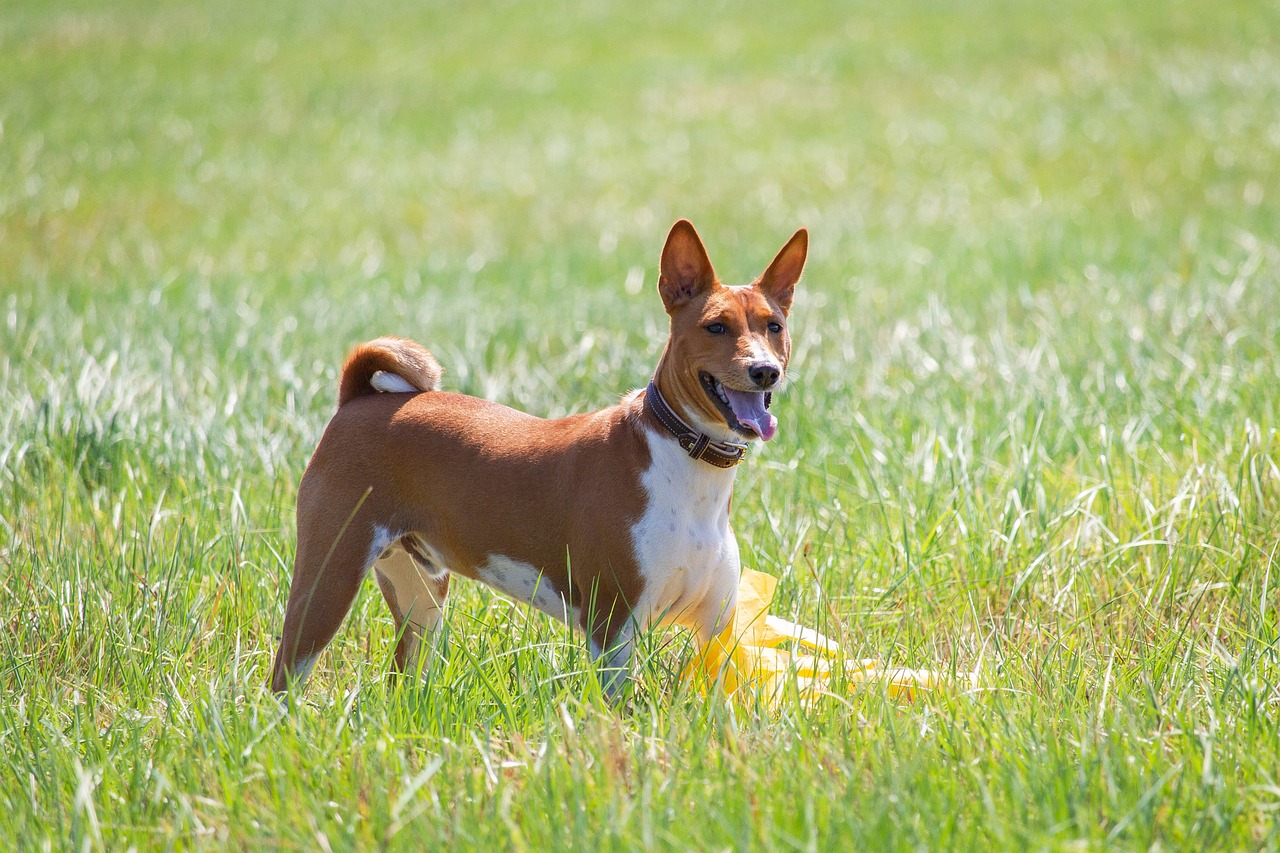 Shutterstock
Shutterstock
Often called the “barkless dog,” the Basenji has a lineage that dates back to ancient Egypt. Originally bred in Central Africa, Basenjis were used for hunting small game and tracking due to their excellent scenting abilities. Their quiet nature (they produce a unique yodel instead of a bark) was ideal for stealth during hunts. Basenjis’ close ties to ancient civilizations make them one of the most intriguing breeds in terms of ancestry and behavior.
Saluki
 Shutterstock
Shutterstock
Believed to be one of the oldest known dog breeds, the Saluki’s history goes back thousands of years to ancient Egypt, Persia, and Mesopotamia. Often referred to as the “Royal Dog of Egypt,” Salukis were companions to pharaohs and nobility. They were used for hunting gazelles and other game in harsh desert climates. Their lean build, speed, and graceful movements reflect their ancient purpose as hunters in the desert sands.
Shiba Inu
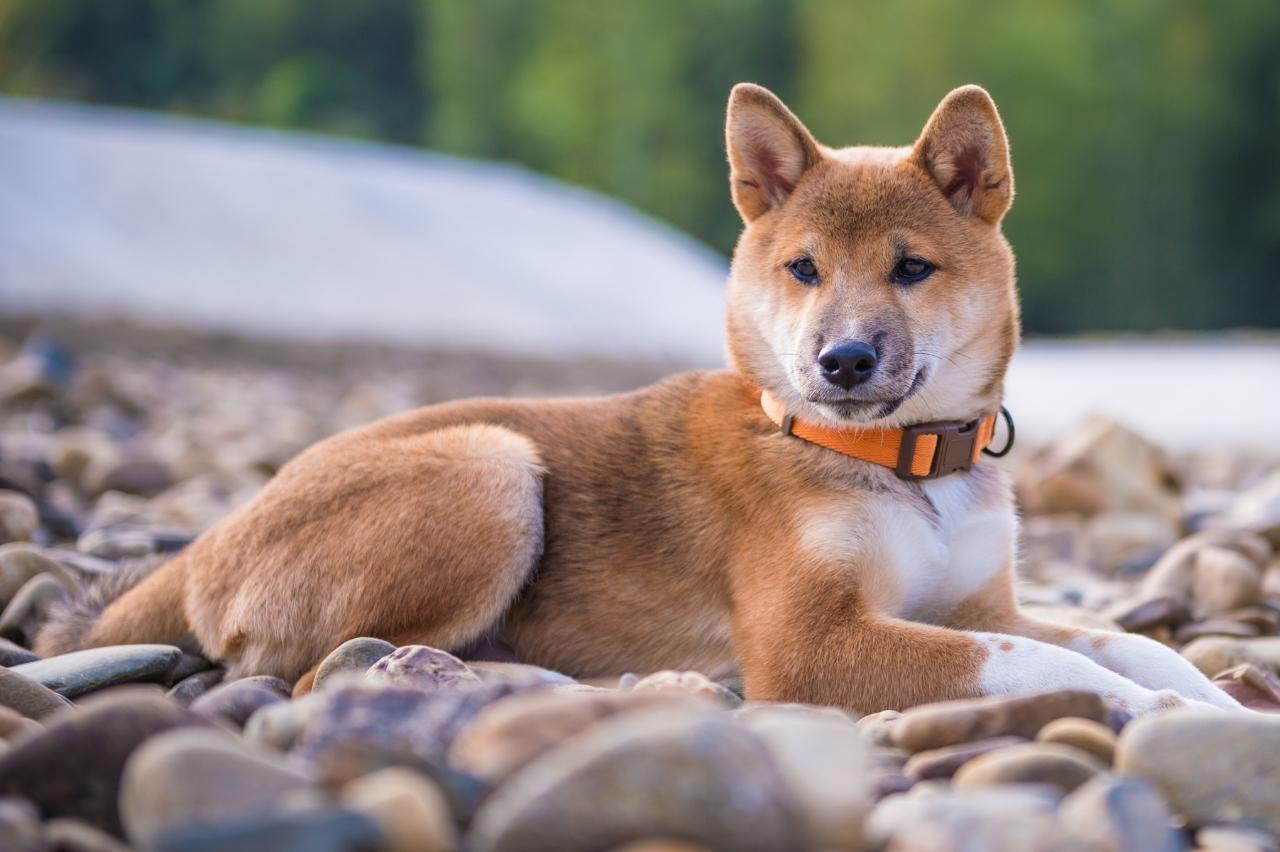 Shutterstock
Shutterstock
The Shiba Inu is one of Japan’s oldest native breeds, with a history rooted in ancient Japan. Bred as a hunting dog in the mountainous regions, the Shiba Inu was used to flush out small game and birds. Its fox-like appearance, bold personality, and keen instincts highlight the breed’s enduring characteristics. The Shiba Inu’s loyalty and resilience made it a valuable asset to Japanese hunters.
Pharaoh Hound
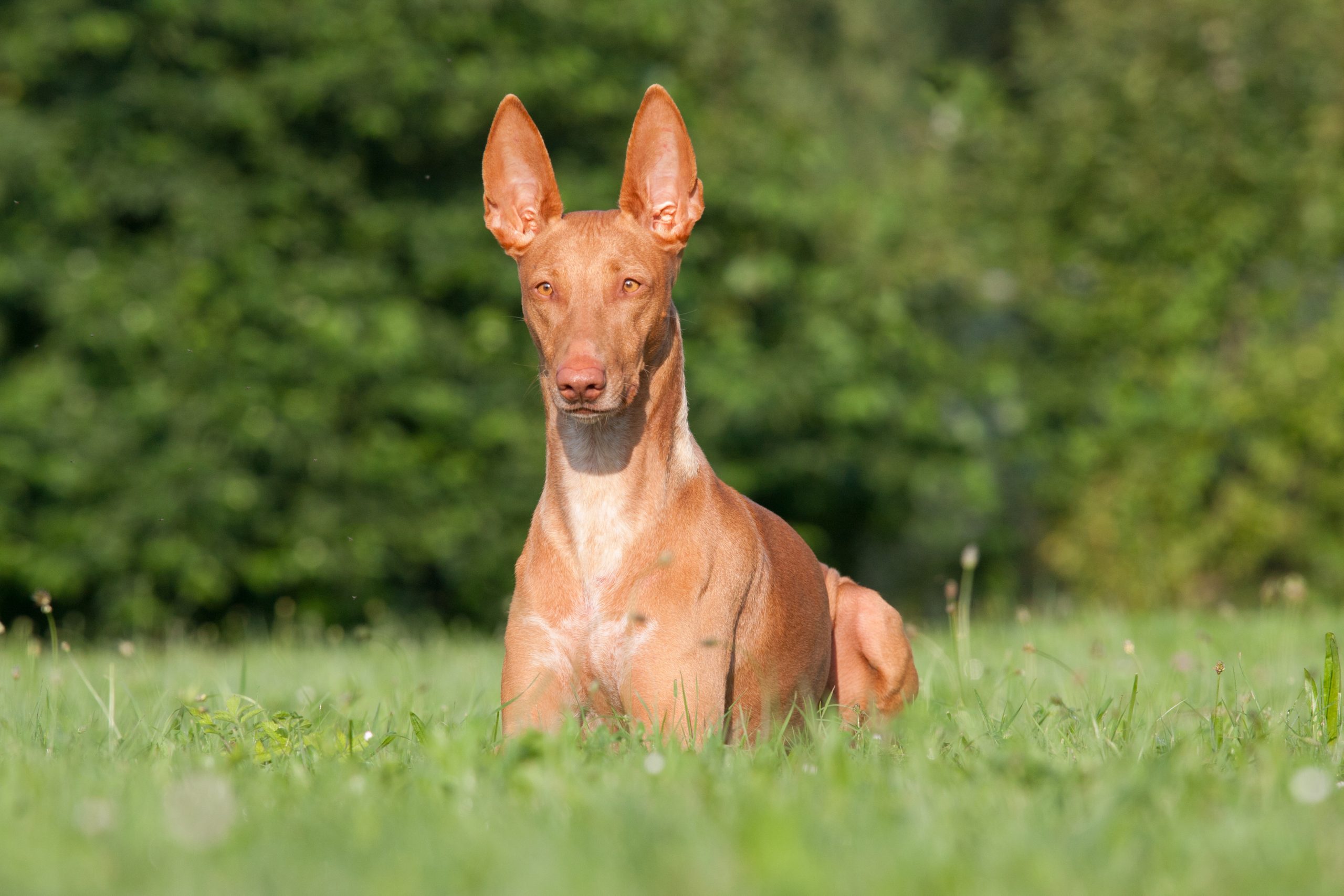 Shutterstock
Shutterstock
The Pharaoh Hound, which shares an uncanny resemblance to depictions of ancient Egyptian dogs, has origins that can be traced back to over 3,000 years. Interestingly, despite its Egyptian appearance, the breed is native to Malta, where it was used to hunt rabbits. Its lineage possibly connects to ancient breeds brought to Malta by Phoenician traders, linking it to ancient civilizations while giving it a unique Maltese heritage.
Akita
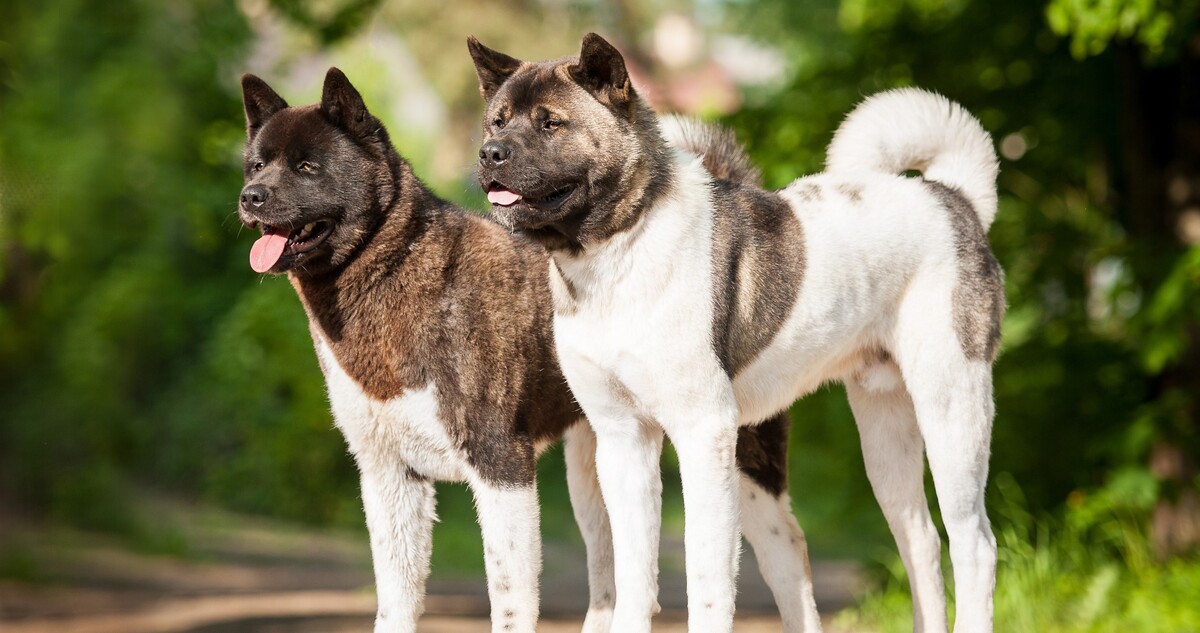 Shutterstock
Shutterstock
Originating in the Akita Prefecture of Japan, the Akita breed is revered in Japanese culture as a symbol of protection and loyalty. Akitas were originally used to hunt large game-like boars and bears, showcasing their strength and bravery. The breed’s ancestry is closely tied to Japanese royalty, and they were often kept as guardians for noble families. Today, Akitas remain a symbol of loyalty, partly due to the famous story of Hachiko, the loyal Akita who waited for his owner each day.
Tibetan Mastiff
 Shutterstock
Shutterstock
The Tibetan Mastiff’s ancestry is rooted in the rugged Himalayan regions, where it served as a guard dog for nomadic tribes and monasteries. Known for its massive build and protective instincts, this breed was bred to guard against predators like wolves and leopards. The Tibetan Mastiff’s ancestry stretches back over 2,000 years, making it one of the most ancient and revered guardian breeds. Its loyalty and courage remain unmatched, and it still carries an aura of mystery from its isolated beginnings.
Alaskan Malamute
 Shutterstock
Shutterstock
With roots in the Arctic, the Alaskan Malamute was bred by the native Mahlemut people of Alaska to haul heavy loads over frozen terrain. This breed’s ancestry is deeply tied to survival and endurance, as Malamutes played a crucial role in sledding expeditions and polar explorations. Their thick double coat, strength, and resilience make them perfectly suited for cold environments, while their history reflects the close bond they share with indigenous Arctic communities.
Norwegian Elkhound
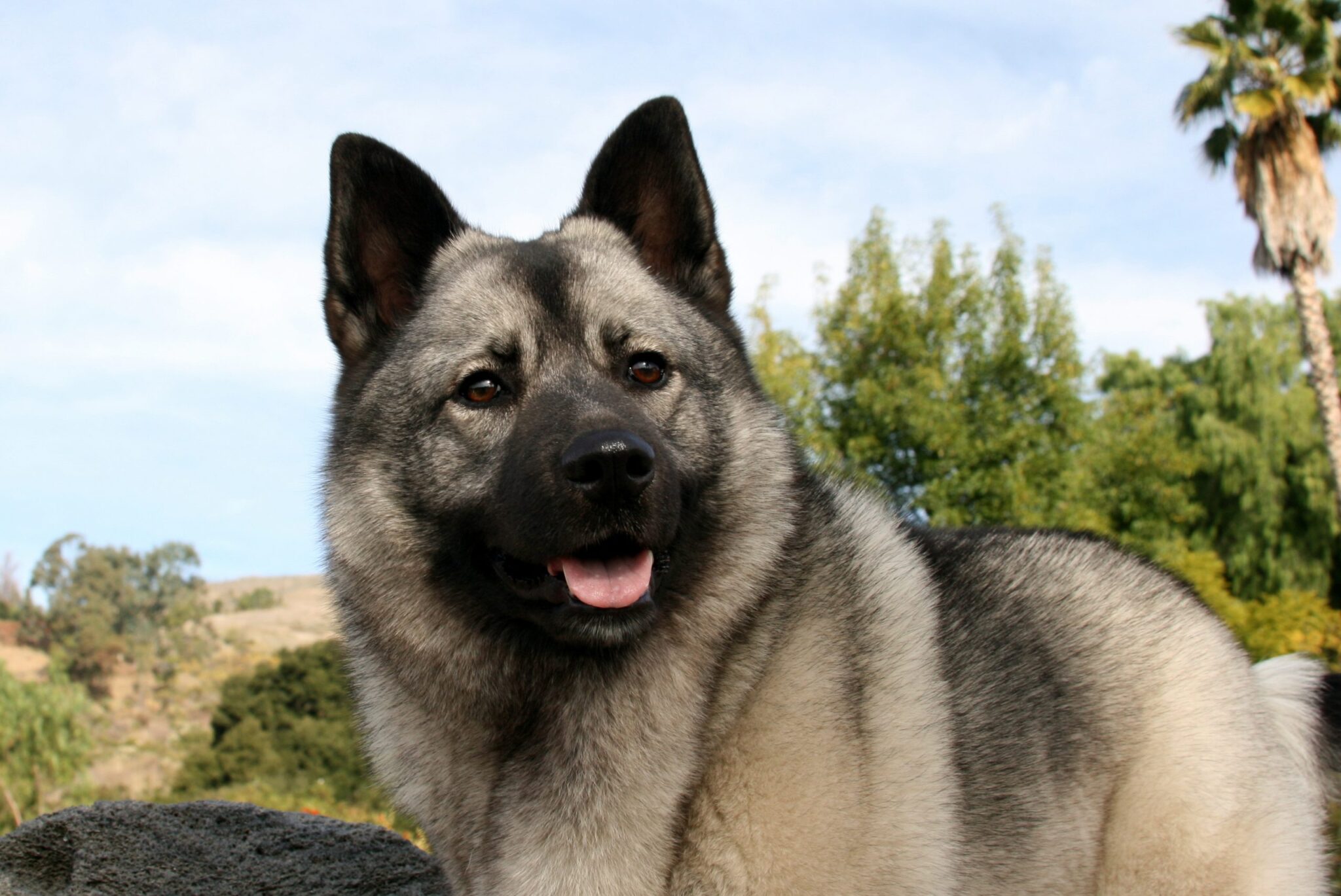 Shutterstock
Shutterstock
An ancient breed from Scandinavia, the Norwegian Elkhound was developed by the Vikings over 1,000 years ago. This sturdy breed was used for hunting elk and moose, demonstrating incredible stamina and bravery. The Elkhound’s loyalty, combined with its exceptional scent-tracking abilities, made it an invaluable companion in harsh northern terrains. Its heritage speaks to the Norse culture and the breed’s resilience in frigid climates.
Chow Chow
 Shutterstock
Shutterstock
The Chow Chow’s history can be traced back over 2,000 years to ancient China, where it was a favored breed among Chinese emperors. Originally bred for hunting, guarding, and even as sled dogs, Chow Chows were versatile and highly valued in Chinese society. Known for their distinctive blue-black tongues and lion-like manes, Chows were often depicted in ancient Chinese art and served as a status symbol for the elite.
Greyhound
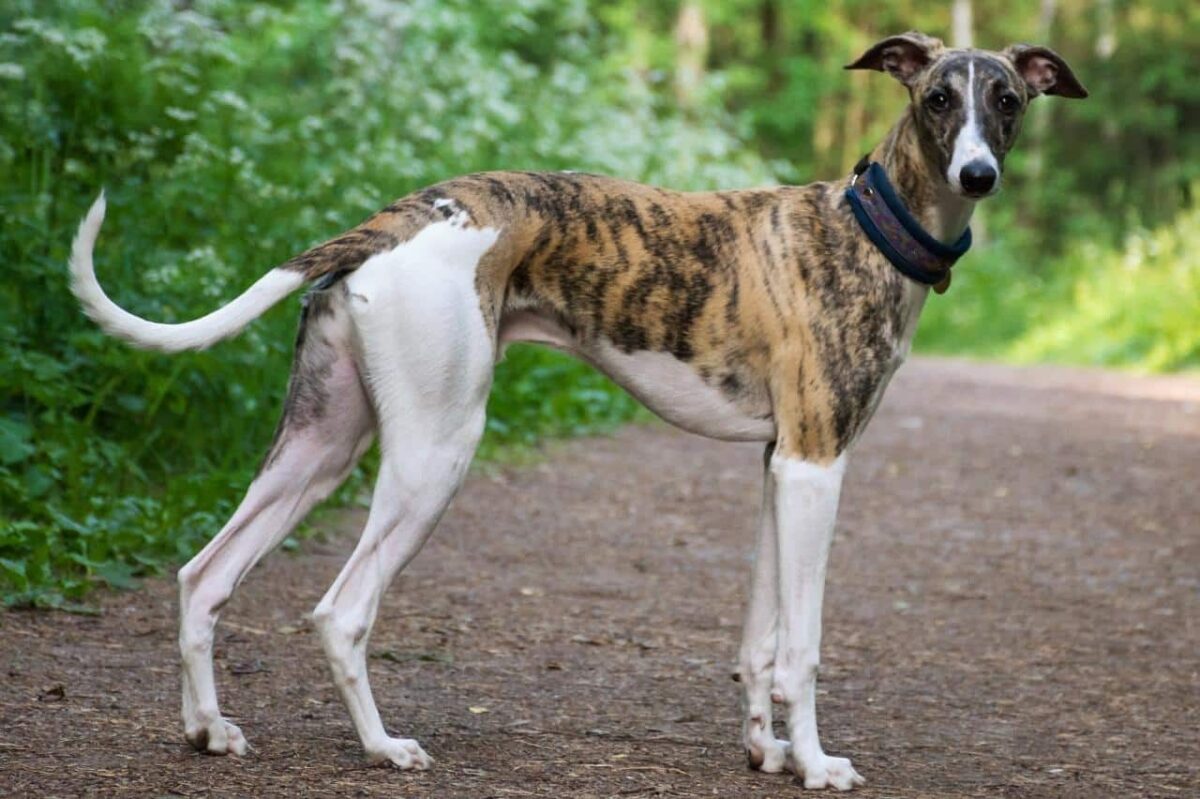 Shutterstock
Shutterstock
The Greyhound’s ancestry dates back to ancient Egypt, where they were prized for their speed and elegance. Bred for hunting and coursing game, Greyhounds were companions to the nobility, and they were often featured in art and literature as symbols of grace and nobility. The breed’s history of racing and hunting has evolved, but their sleek build and gentle nature have made them cherished companions throughout the ages.
Bloodhound
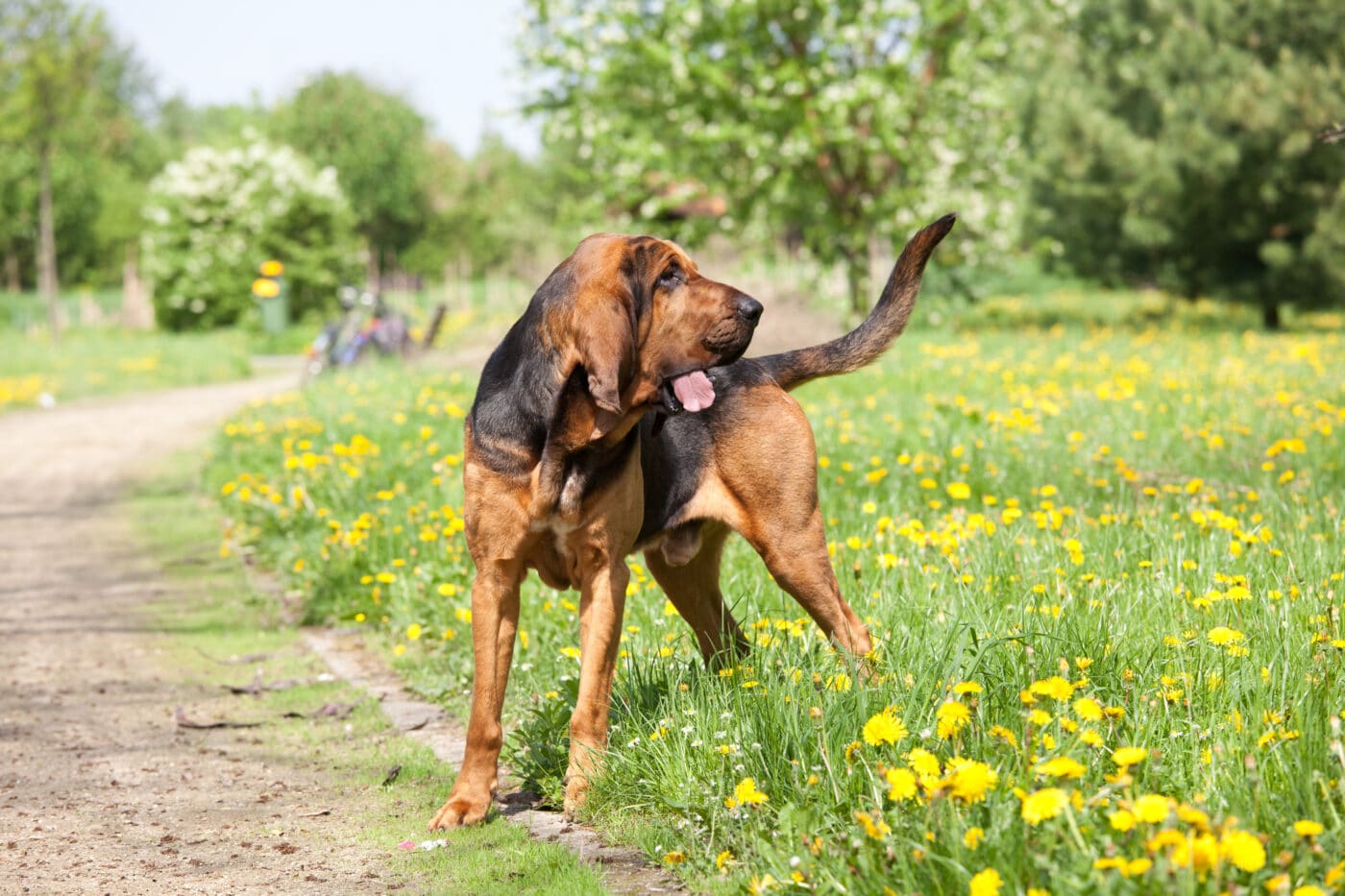 Shutterstock
Shutterstock
Renowned for their exceptional scent-tracking abilities, Bloodhounds have a rich history rooted in medieval Europe. Originally used by monks to track game and lost travelers, Bloodhounds possess an unmatched sense of smell that has been utilized in search-and-rescue missions and law enforcement. The breed’s ancestry is one of dedication and service, and their loyalty and persistence remain vital traits today.
Komondor
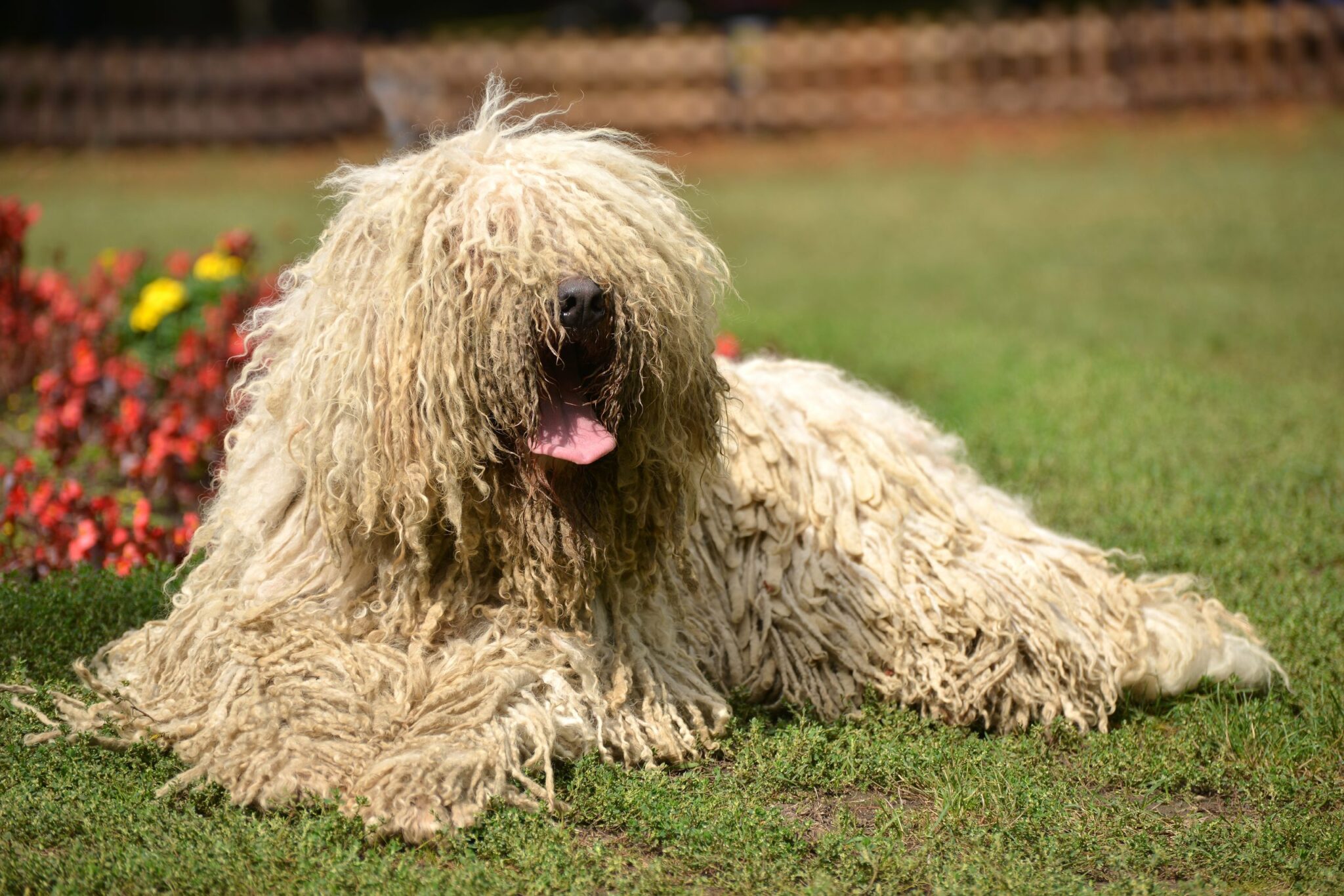 Shutterstock
Shutterstock
Known for its unique corded coat, the Komondor has a history steeped in Hungarian culture, where it was used as a livestock guardian. Its distinct appearance helped it blend in with sheep flocks, and its courage and independence made it an excellent guard dog. The Komondor’s ancestry reflects its role as a protector of herds, and its coat is a testament to centuries of adaptation in rugged environments.
Irish Wolfhound
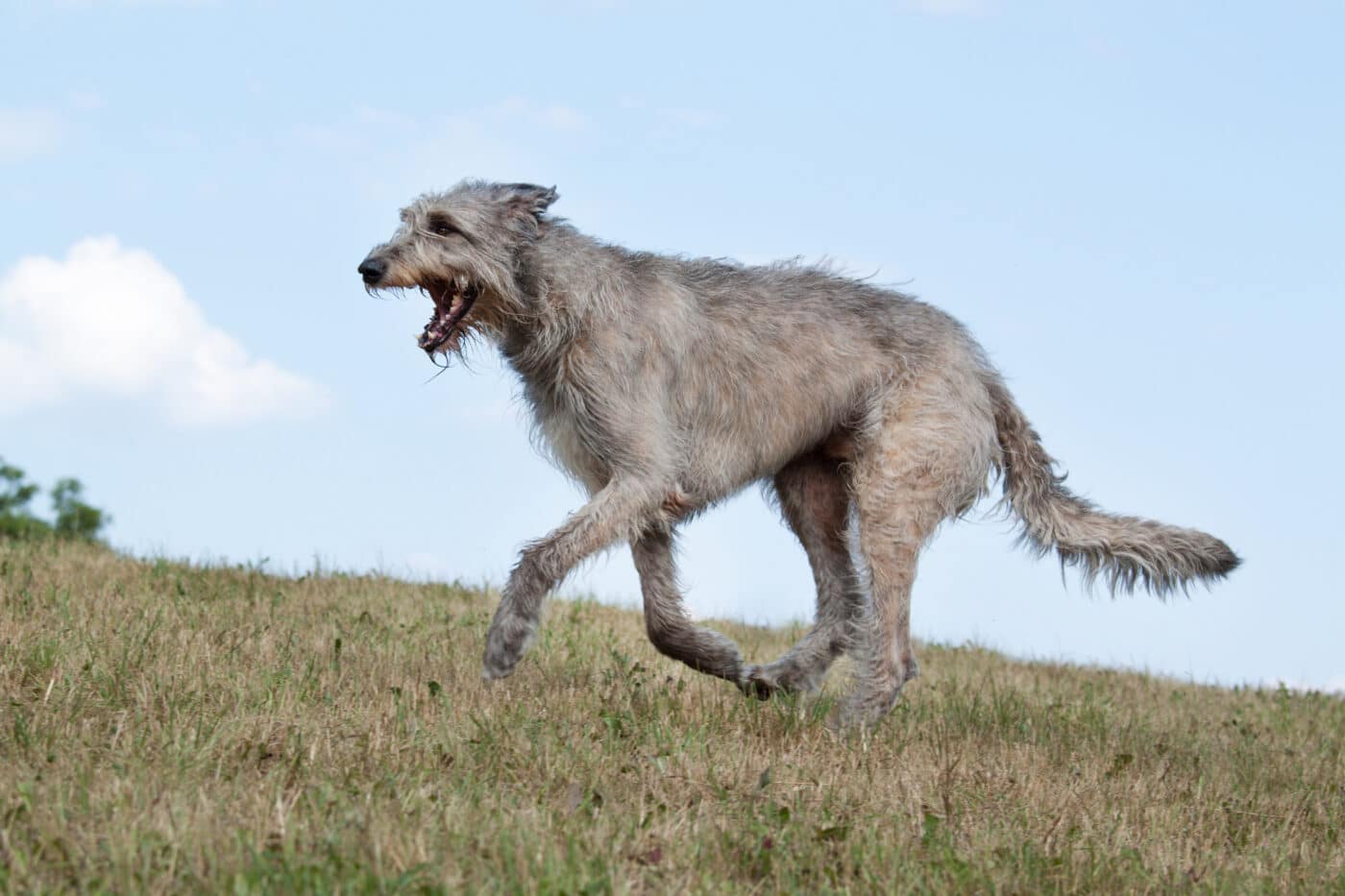 Shutterstock
Shutterstock
As one of the tallest dog breeds, the Irish Wolfhound has an ancestry intertwined with Celtic culture and legends. This breed was bred to hunt wolves and other large game, showcasing its strength and bravery. Irish Wolfhounds have been companions to kings and warriors, and their presence is immortalized in Irish history and mythology. Their imposing size and gentle nature embody a legacy of loyalty and valor.
Dachshund
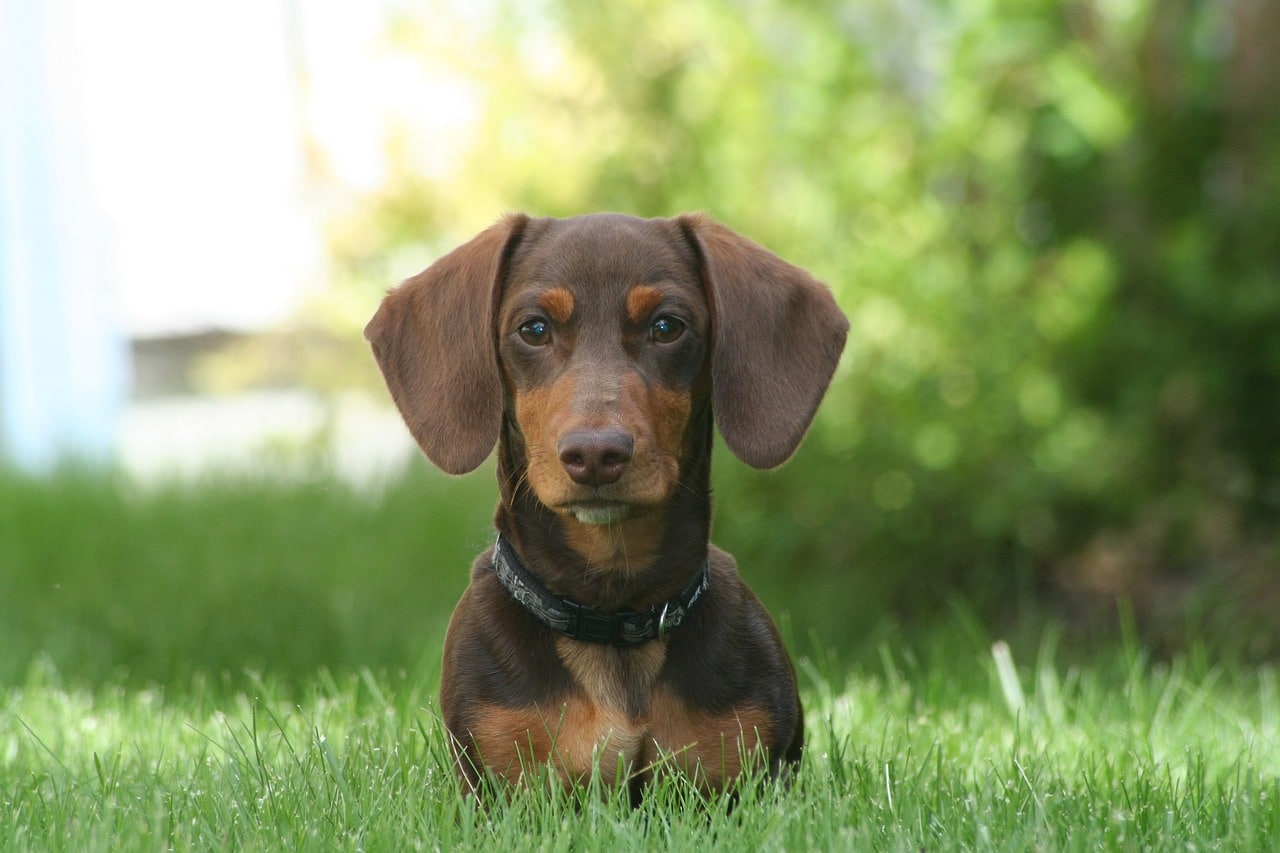 Shutterstock
Shutterstock
The Dachshund was originally bred in Germany to hunt badgers, a task that required courage and determination. With a long body and short legs, this breed was perfectly suited for burrowing into tunnels. Dachshunds come in various sizes and coats, each adapted for different terrains and hunting styles. Their ancestry is a testament to the breed’s resourcefulness and tenacity, making them skilled hunters with a big personality.
The Tail-Wagging Ancestry of Dogs
 Shutterstock
Shutterstock
These remarkable dog breeds bring a legacy that spans centuries, each one embodying unique skills, traits, and a cultural history that connects us to the past. Today, they enrich our lives not only with companionship but also with a sense of wonder for their fascinating ancestries. From loyal hunters to noble protectors, their quirks and characteristics are living reminders of the ancient bonds that dogs and humans have shared through time. These breeds are indeed links to the past, carrying history forward—one joyful wag at a time.

 1 week ago
6
1 week ago
6


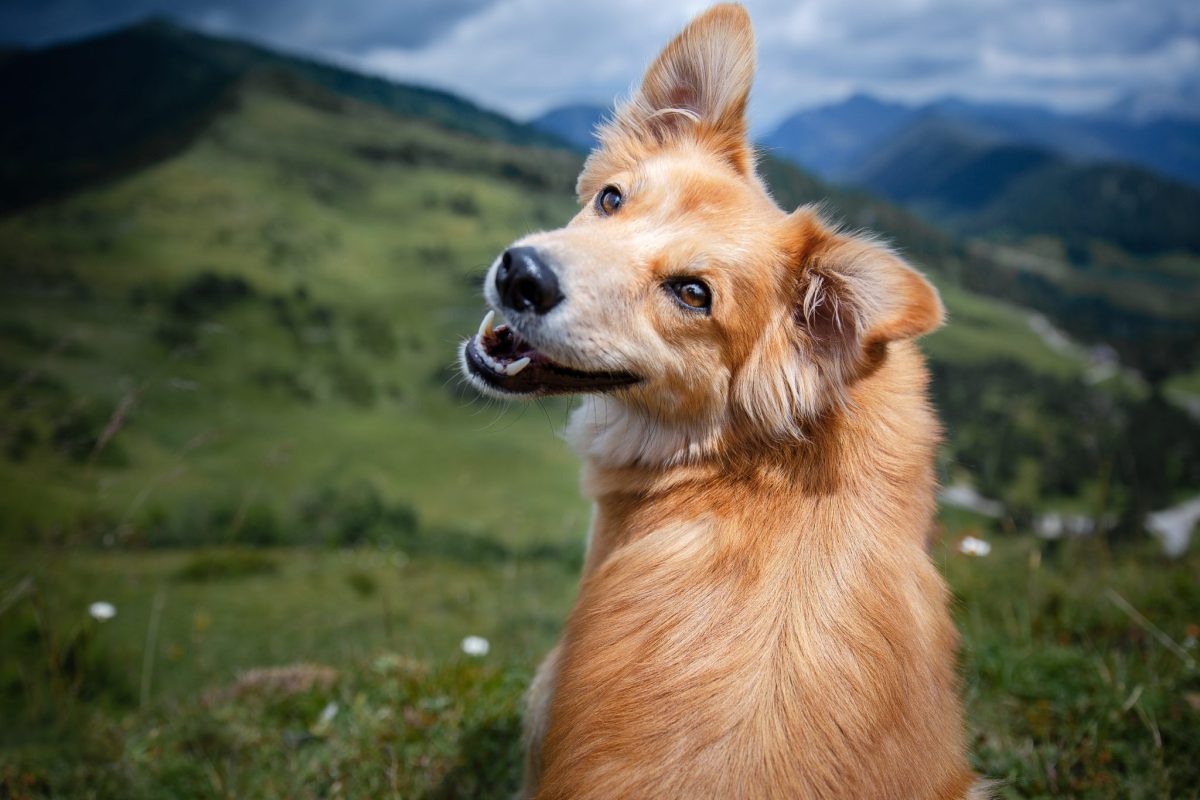
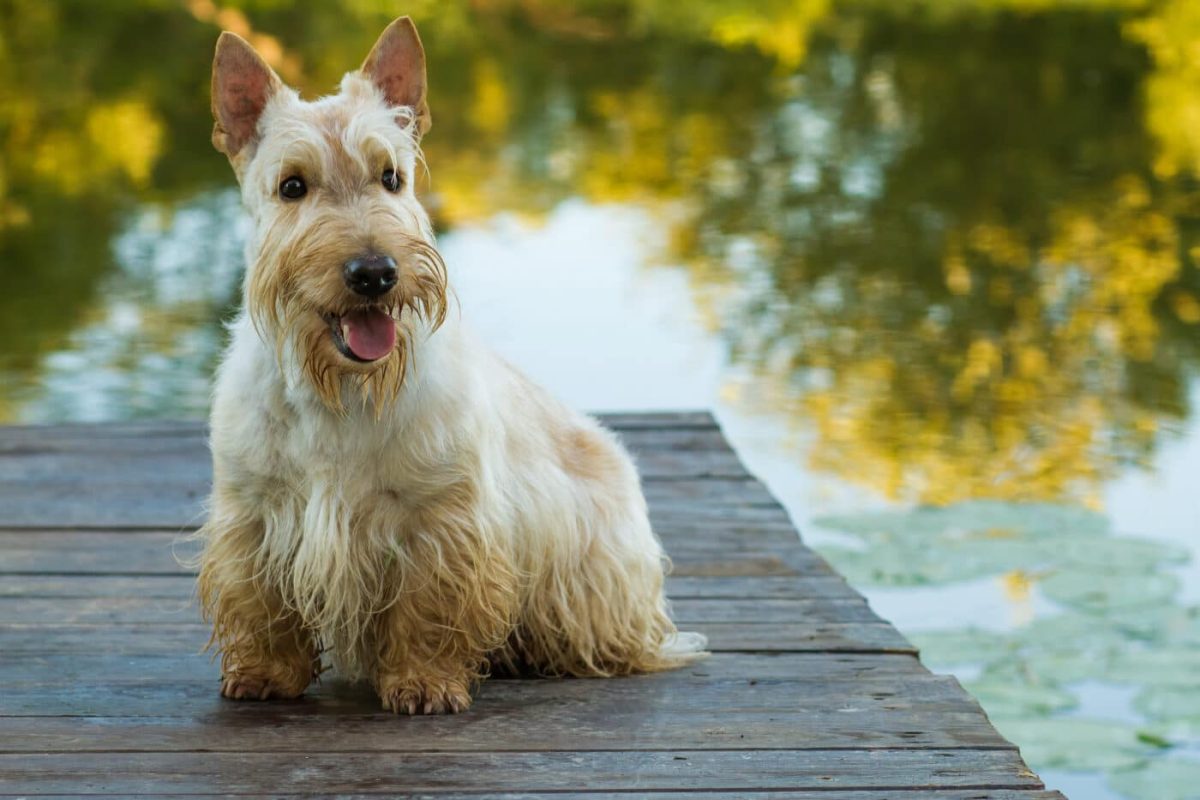


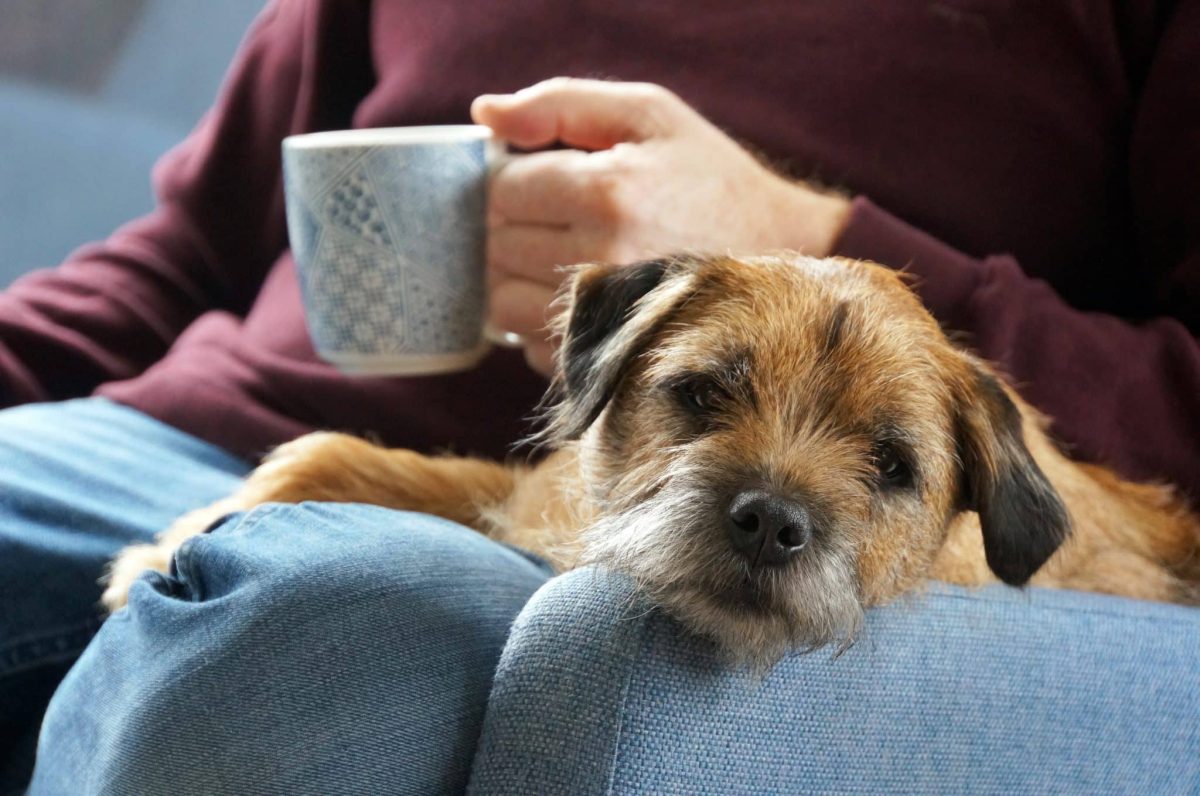
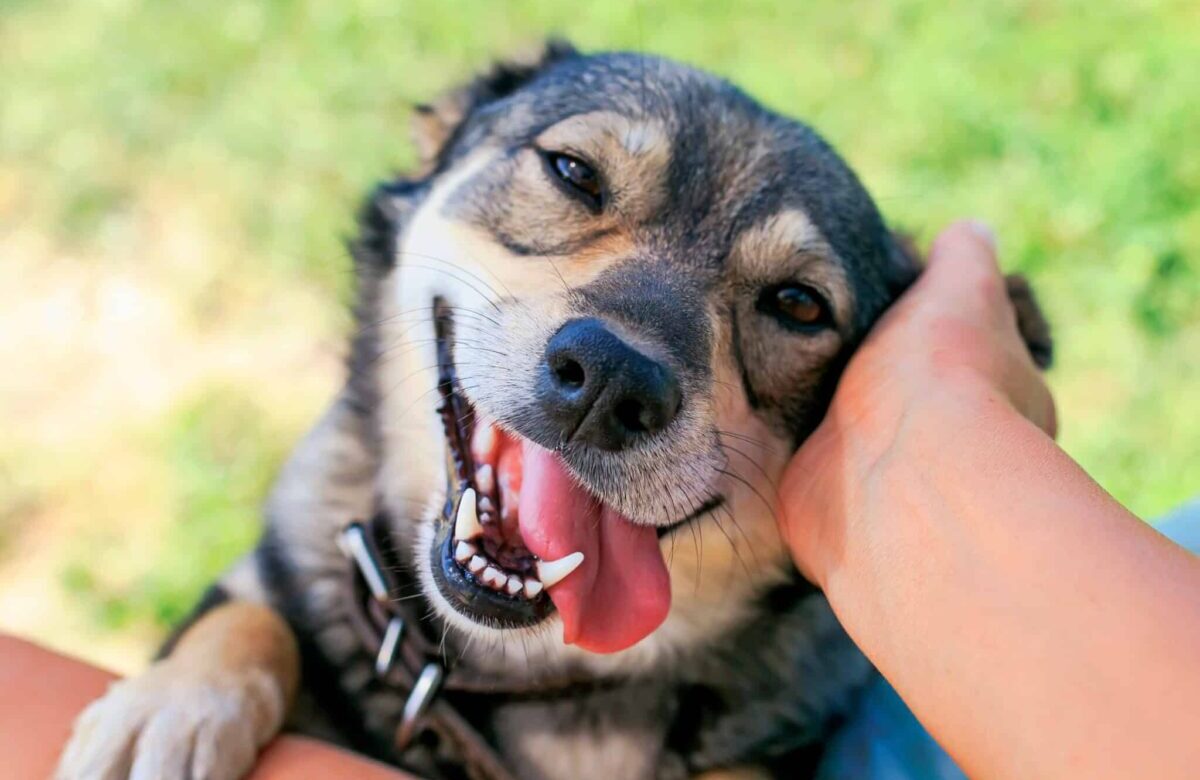
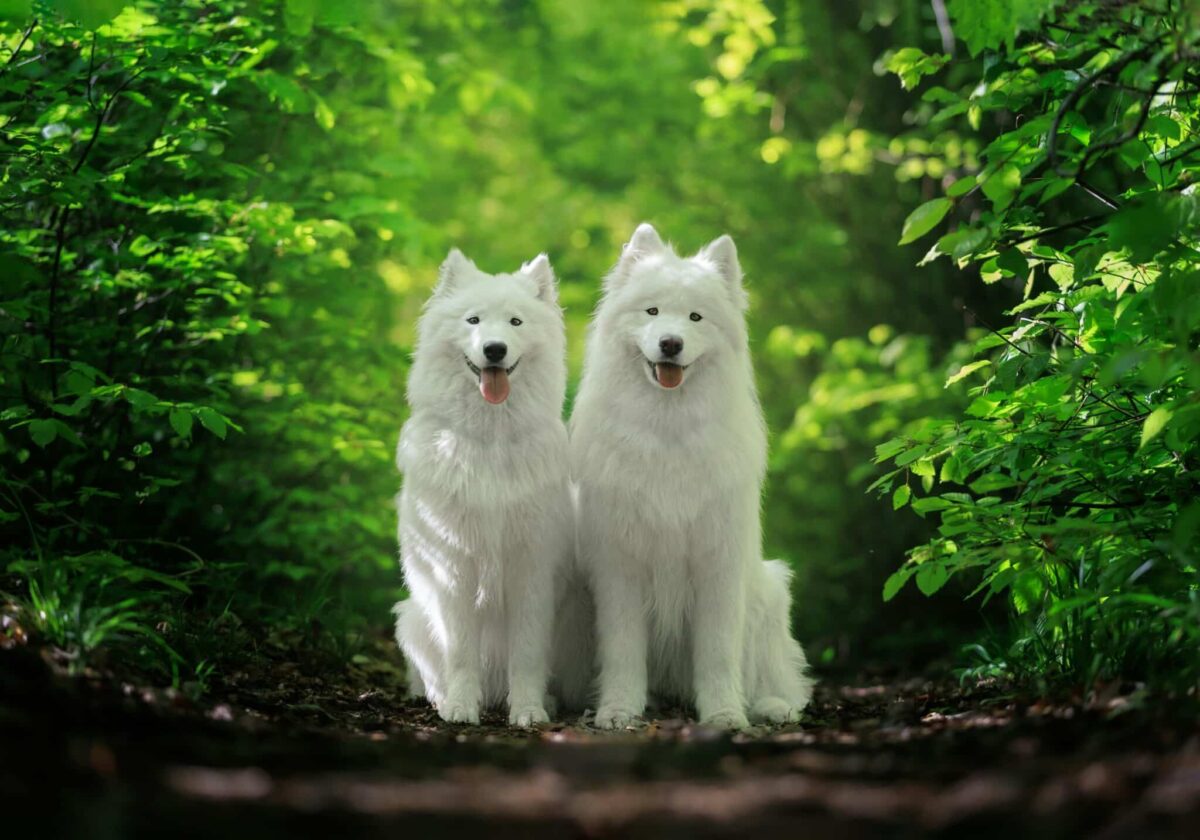
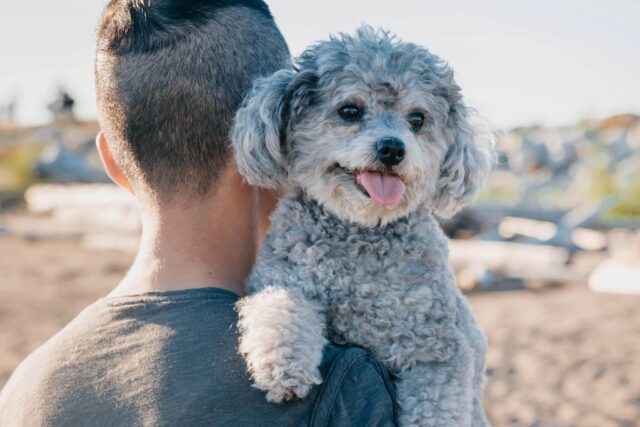
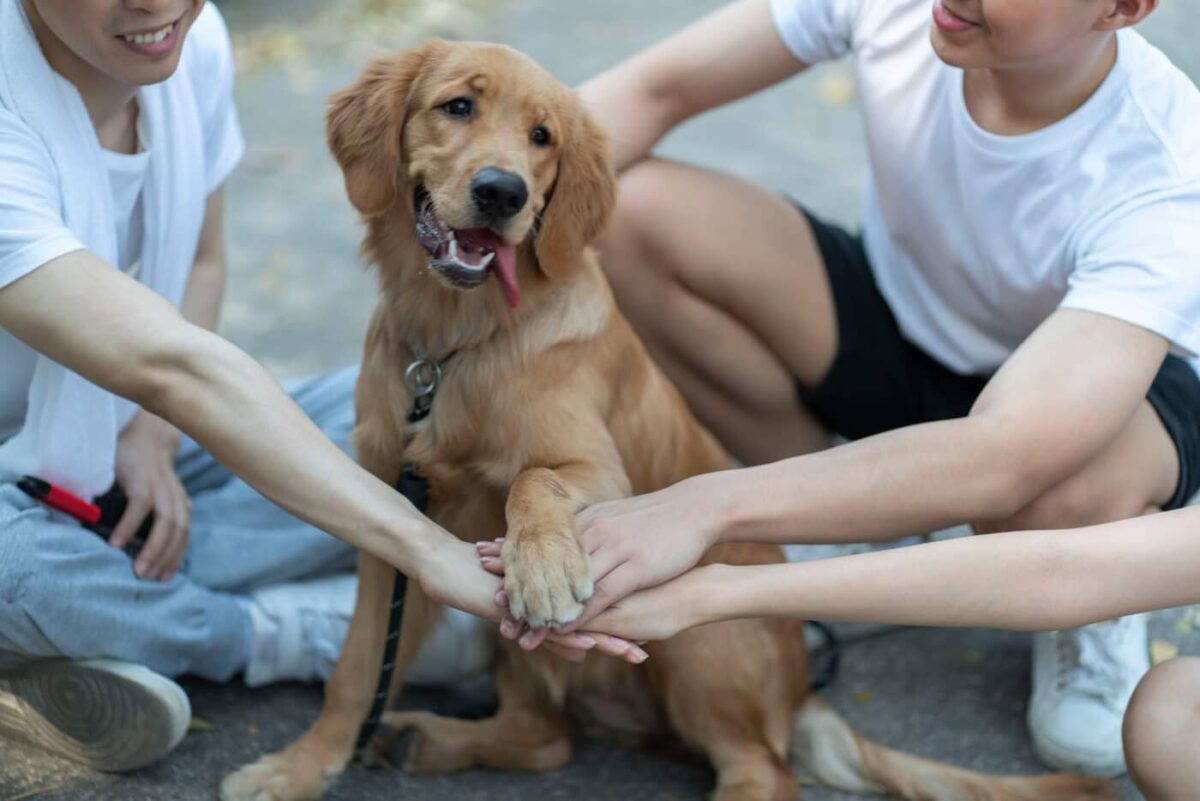
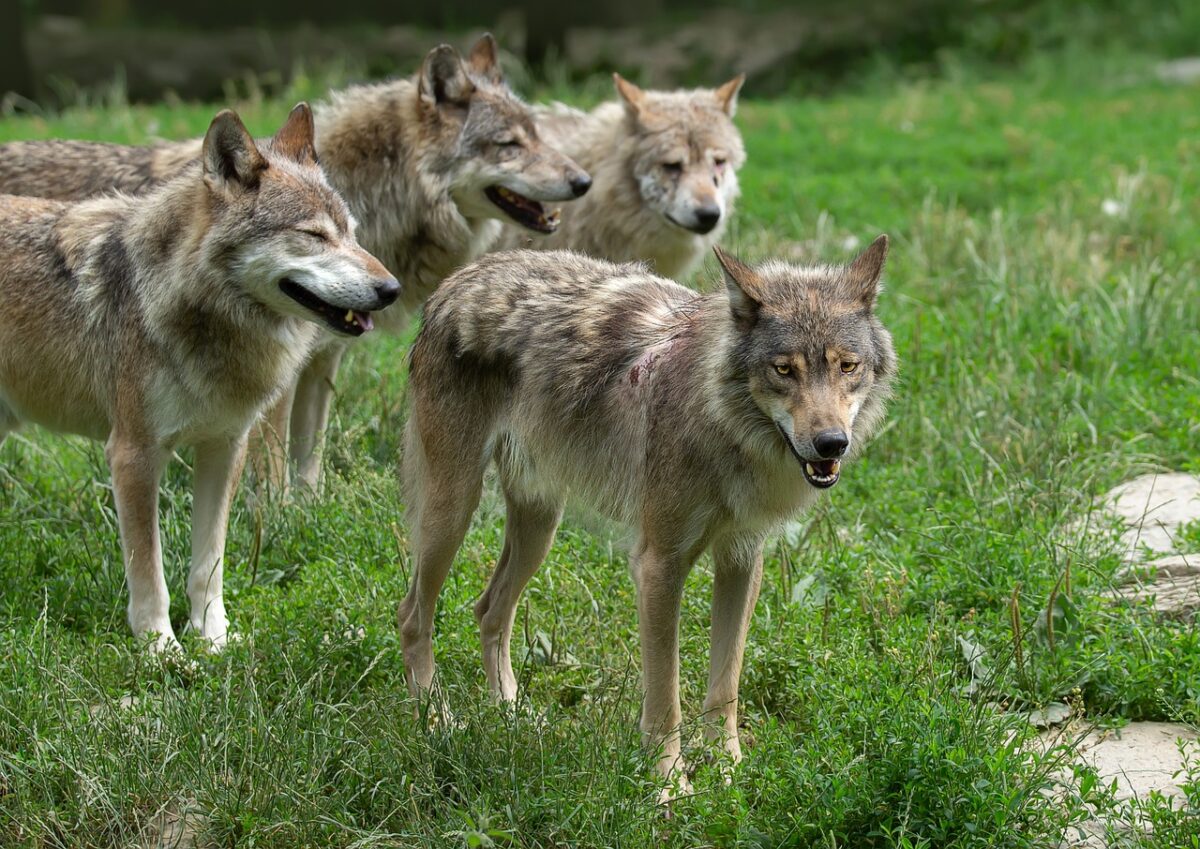
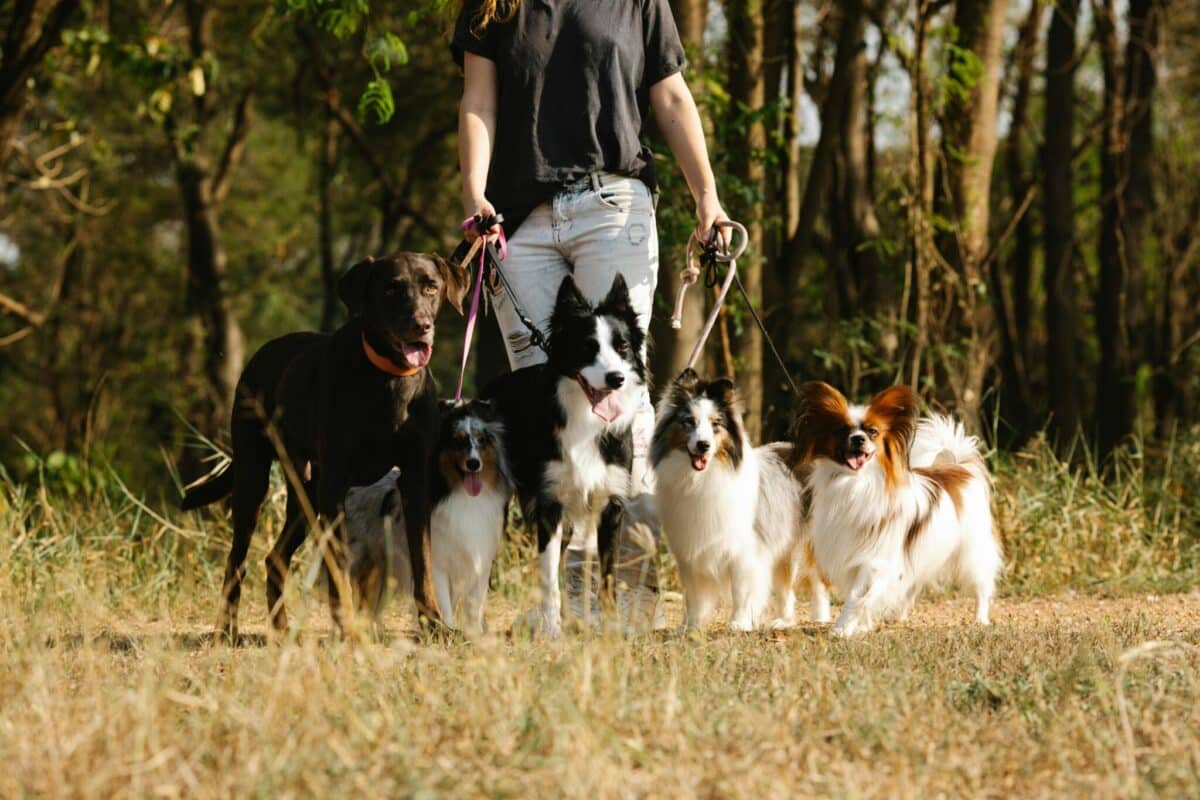
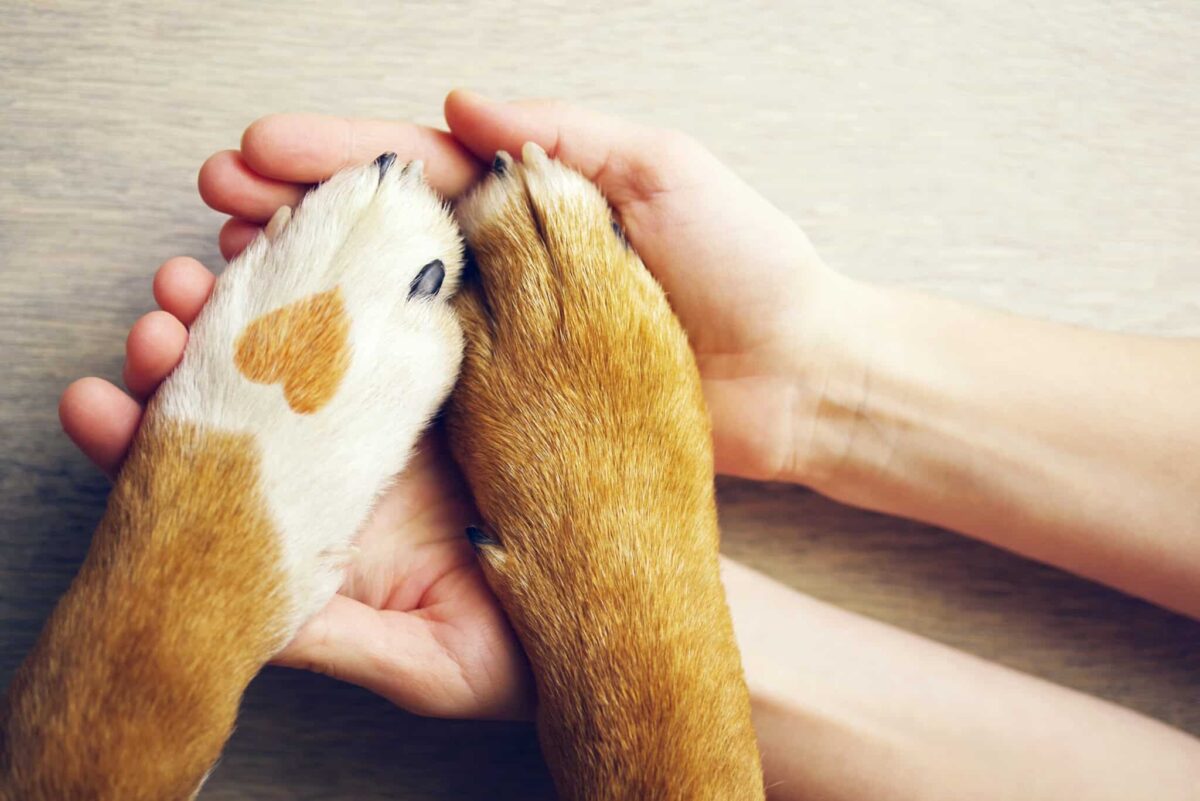


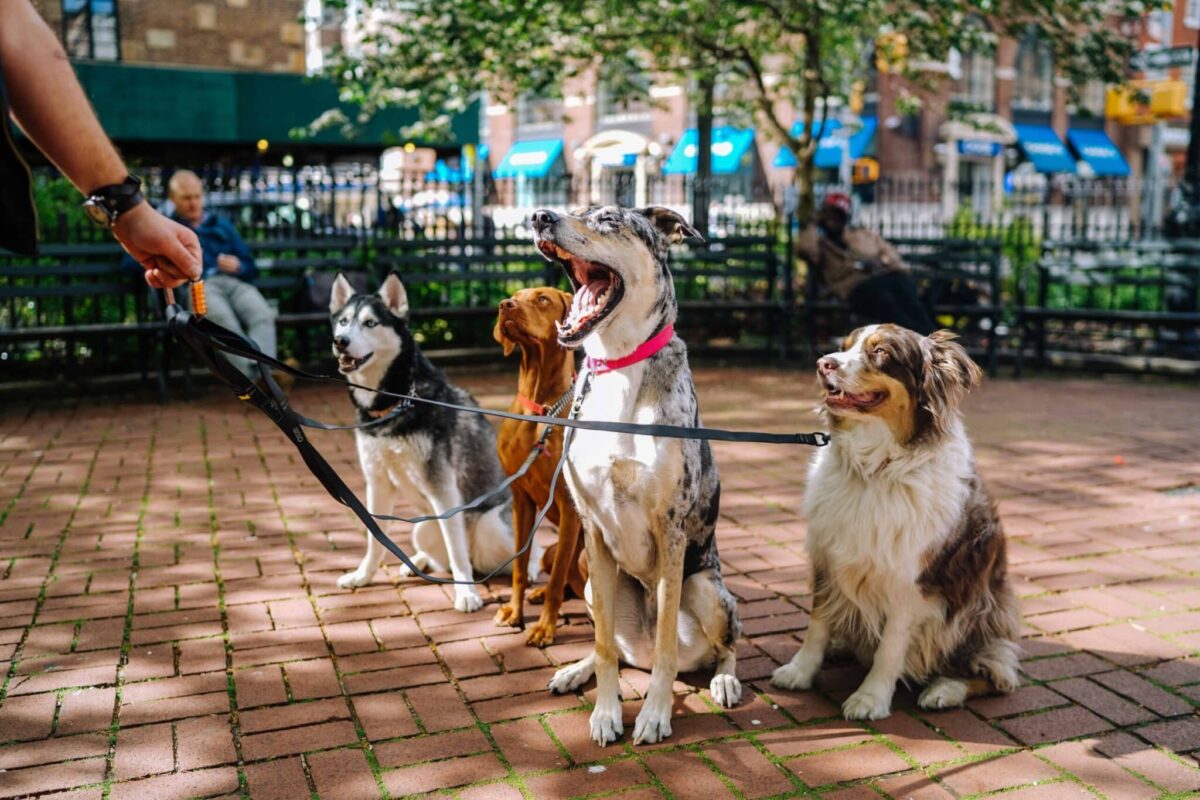
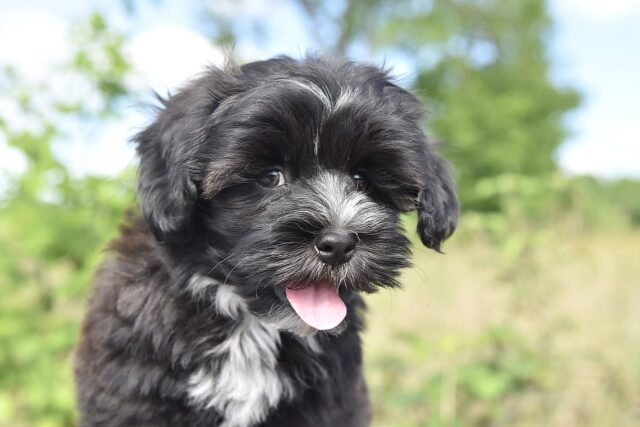
 English (US) ·
English (US) ·